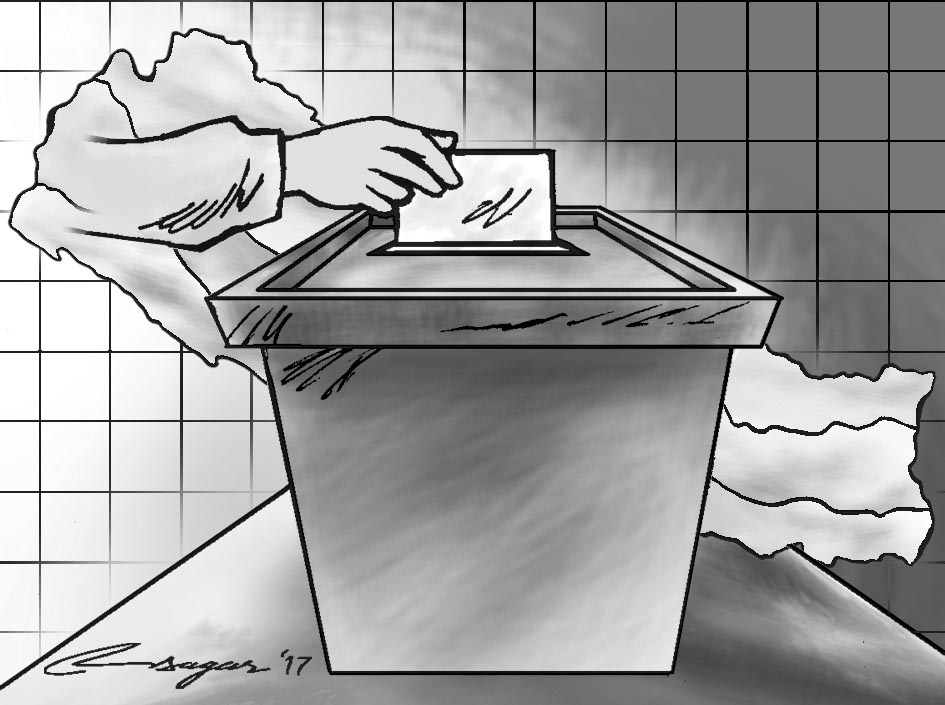The political impasse: A middle path
The political parties, ruling alliance, the Madhesi Morcha and the opposition should realise that strengthening democracy, institutionalizing federal set-up and safeguarding achievements are possible only if periodic elections take place on time
With the implementation of 744 local units as suggested by the Local Level Restructuring Commission with minor changes, the dream of the Nepalese people to see the governance system at the door is going to be materialized. When the election to the local levels according to the new structure will be held people’s representatives will fill the political vacuum in local level governance and definitely accelerate the developmental activities as per the wishes of the people after one and a half decades. But the Madesh-centric parties may not participate in the election immediately as they have already threatened to disrupt the election and conduct protest programs. All should realize that the country cannot be kept in status quo always, and some amicable solution should be sought so that the polls take place on time and federalism comes fully into operation.
There should be no further delay in seeking the way out from the present situation, otherwise the country may enter into another kind of conflict which cannot be tolerable. As the election date is approaching, there should be more engagement among the big parties and Madhesi Morcha to find the win-win situation so that a favorable environment for the elections is created. Only the elections can ensure the achievements of Jana Andolan-II which would lead to the implementation of the constitution promulgated by the Constituent Assembly.
As the date of the election is approaching, the ruling alliance and the opposition should apply maximum effort to reach a consensus regarding the amendment of the bill. Most of the issues raised can easily be sorted out. The most contentious issue is the boundary of the Pradeshes. The bill pending in the parliament should immediately be forwarded as per the existing procedures, and all concerned should accept it whatever the outcome may be. It is not fitting on the part of the opposition and Madhesi Morcha when one side is adamant in discussing the bill in parliament and another threatening to not accept the result if the amendment bill is not passed in their favour. Such extremities deepen the crisis further. In a democracy, the parliamentary decision should be respected by all parties.
There is widespread dissatisfaction regarding the changing of boundary in Pradesh No. 5. Therefore, the parties concerned should not be in a hurry to repent later regarding the changes in the Pradesh boundaries. For provincial issues, a high level commission should be formed and the commission should be mandated to give a proper solution keeping those in the disputed regions in top priority. Extensive discussions and a wider consensus are a must. Without a wider consensus among people of the various regions, the division may become worse than ever before. At the same time the constituencies’ determination commission to be formed would be tasked to finalize the constituencies for federal and provincial elections to be conducted before January 2018. The report from the commission and extensive discussions among parties would help in coming to a conclusion by paving the way for the other two elections to be accomplished on time too.
If this does not give any outcome, the political parties must understand that the present structure of the legislature-parliament does not in any way pass the bill as it is since even the MPs from the ruling parties are also divided. The best option would be to pass the bill from the parliament removing the issues of provinces immediately and conduct election on time. Political parties can take their agenda among the people and convince them to be in their favor. The House of Representatives to be formed can decide on the fate of provinces’ boundaries. The constituent assembly has completed its assigned task formed for transitional management only. Going for a fresh mandate on consensus is the only option for the political parties if they really recognize people’s supremacy.
It is apolitical not to participate in the electoral process by stating that the demands are not met. Unless people are given the right to exercise their right to vote periodically, democracies and democratic institutions cannot function well. It is said that the local bodies are the workshop of democracy; and our local bodies have not experienced any election for the past two decades. A newly born child at that time is now an eligible voter now. Is this not a mockery of democracy?
Thus, the political parties, ruling alliance, the Madhesi Morcha and the opposition should reach the conclusion that strengthening democracy, institutionalizing federal set-up and safeguarding achievements made so far are possible only if periodic elections take place on time. Otherwise, the frustrated people can favor the traditional forces not satisfied with the present change by making most of the fragile situation.
The concerned political parties should ensure a free, fair and credible election by keeping aside their differences. We should now concentrate on economic development, social inclusion and a prosperous Nepal. The time has come to unite irrespective of our different political ideologies and political schooling. We must stop thousands of youths leaving the nation and working in foreign lands due to the absence of opportunity here for the arduous task of nation building.






